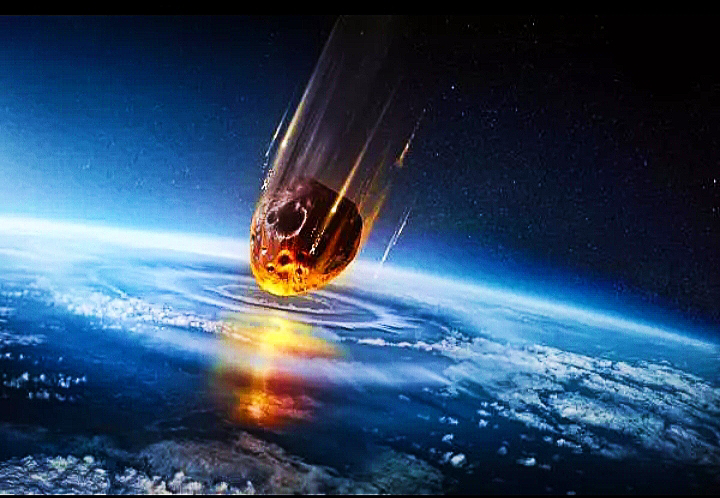According to a new study—currently posted on the preprint server arXiv and soon to be published in The Astrophysical Journal—the planet is currently not at risk from the planet-destroying objects that wiped out the dinosaurs.
Like, very safe. The asteroid in this category with the best chance of hitting Earth only has a .00151% chance of getting as close to us as the Moon is—not even making an impact.
And according to MIT Technology Review, that .00151% chance is 10 times higher than any other asteroid in the category.
Asteroid impacts are not something anyone takes lightly. NASA has been tracking near-Earth objects (NEO) locations for some time now and does its best to spot and monitor anything that could pose a danger.
Though not perfect, its catalog of these potentially dangerous objects is reportedly thought to be about 95% complete, with data on everything from little space rocks to potential world-destroyers. (According to experts, an asteroid must be about a kilometer, or 0.62 miles, wide to create a seriously Earth-shattering impact.)
"Impact of a 1-kilometer asteroid would probably cause significant cooling on Earth due to debris ejected in and above the atmosphere blocking sunlight, subsequent die-off of vegetation and crop failure, which then leads to mass starvation of mammals and famine," said Davide Farnocchia, a navigation engineer at NASA's Jet Propulsion Laboratory, and one of the authors on this study, in an article from Space.com.
"There is no known object that will impact and cause this for 1,000 years, though there are a few we should continue to keep an eye on, how their orbits could evolve."
Farnocchia and the rest of the team behind this relieving study analyzed around 1,000 NEOs in this particularly threatening size class and used computer models to project how their trajectories and orbits would evolve over the next millennium.
And luckily for us, it seems like none of those monsters are in danger of smashing into our planet any time soon.
"It's good news," Oscar Fuentes-Muñoz, the study's lead author, said in an article from MIT Technology Review. "As far as we know, there's no impact in the next 1,000 years."
Now, it should be said that this does not mean we're totally out of the woods.
This study was meant to predict planet-enders only, which doesn't mean we couldn't get hit with something smaller and more localized that would cause significant damage.
It just means we're not staring down the barrel of the next end-of-the-dinosaurs-level event in the near future.
So, NASA and other space monitoring agencies will keep an eye out and continue to develop defense systems in case anything does break bad.
But for now, we can breathe a little easier knowing that, most likely, our death isn't coming from the stars any time soon.
This article was originally published in Popular Mechanics.

Comments
Post a Comment